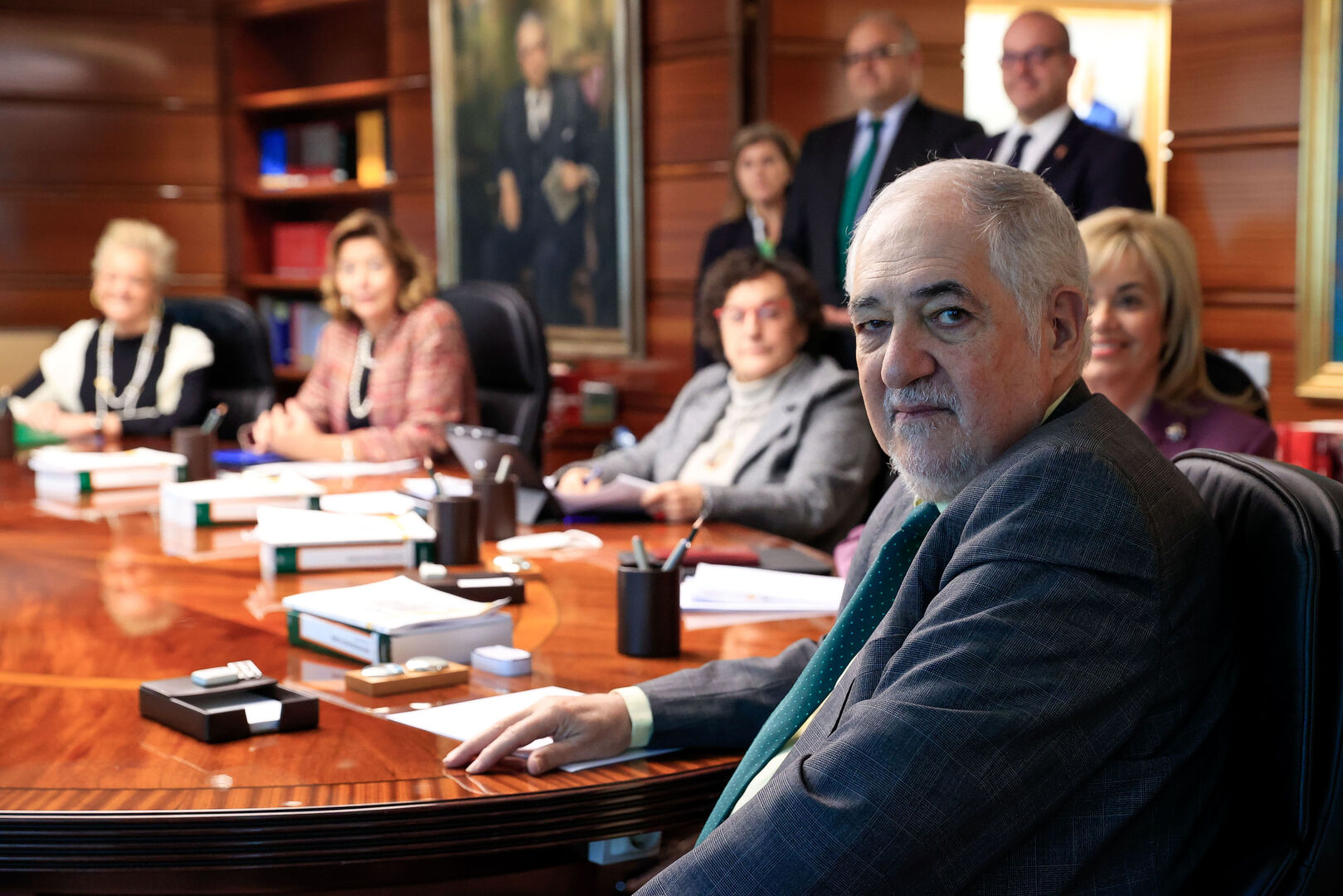"It's an attack on the division of powers, but the state has not fallen."
- They should be excellent, worthy, above the capabilities of their peers. This is not the case, however, says Joaquín Urías, a professor of constitutional law and former lawyer of the Constitutional Court. He says that the two judges rejected by the Spanish Constitutional Court are good soldiers, but not good magistrates.

For Joaquín Urías, neither one of his alternates will be a good judge, Juan Carlos Campo, former minister of justice and a person who has been in the PSOE for 20 years. It considers that the Constitutional Court does not need more soldiers, but very technical people of different ideologies, able to interpret the rules emanating from the legislature, outside the political parties that propose these rules.
I have been waiting for days to see the king, but it seems that a right-wing coup is not his account.
Remember that we always advocate that the king should not intervene in politics. It must be a symbolic task, it must not come out to help one another.
I'm confused, I hear a judicial coup...
The Constitutional Court has surpassed its powers, so it is a judicial blow. It is an attack on the division of powers, but the state does not fall. If there were a coup, Spain would not be democracy. There has been an exception and they have fallen illegally above the separation of powers, but the Spanish system has not changed.
What options does Pedro Sánchez, president of a democratically elected government, now have?
More than opportunities, Pedro Sánchez and, above all, Parliament must demonstrate to the Constitutional Court that the democratically elected powers are above him. That the will of the people must be realised, even if the judges on the right refuse and prevent the debate on the amendment. Parliament must show that democracy wins, that the people have the legitimacy to adopt that rule.
The constitutional is a guarantee body, but the core of the problem is the General Council of the Judiciary [CGPJ]. Why does the PSOE reject the original blockade of this institution?
The PSOE is playing pragmatic, the General Council of the Judiciary has more than one mandate without being renewed, and I believe that the PSOE has lost its renewal. When the delay lasts a full term and the vowels act as a third term, the system shows that it does not work. The truth is, I don't know very well what PSOE does, whether it thinks there are no mechanisms to fix it or whether it considers it lost.
Do we like the Office of the Prosecutor of the Constitutional Court?
The Spanish public prosecutor’s office is a problem in all courts, because there are always doubts about impartiality. I think we like the prosecution of the Constitutional Court when it agrees with us. It is now asking for something reasonable, in others not, for example when it invaded competences in the Catalan Parliament. We like to be independent, sometimes we will match it and sometimes not.
What do you expect to happen in the coming days?
The urgent thing is to renew the Constitutional Court. We have a great problem, two judges who do not want to complete their term of office and also do not allow their replacements to take office. This is the greatest anomaly in this whole situation. They must accept abandonment. Faced with this, I am not very clear how to act. The draft law will not be adopted until the end of January or February, so we have to wait two months and perhaps a new legal measure will be necessary.
Remove the salary?
No, it cannot. In a way, they must be obliged to fulfil their constitutional obligation. What they are doing is a constitutional rebellion, they say they stay there and stop. Perhaps a complaint should be brought to the court.
Prevarican?
I would not dare to say that, to make prevarication, because we have to know that what they do is illegal, and they believe that the state is theirs. They are fundamentally convinced that the law and the state are theirs and believe that they are not above the law.
Pedro González-Trevijano was long and inadequate in the Rectorado of the Universidad Rey Juan Carlos and gave numerous titles to the great PP presidents. So he knows how to adapt and not rise when asked.
The problem has a lot to do with the selected profiles. And considering the members he proposes, Juan Carlos Campo and Laura Díaz, the government of Sánchez is as bad as the PP. Campo is a former justice minister and has been in PSOE positions for 20 years. Unfortunately, it has a very similar profile to that of Enrique Arnaldo and González-Trevijano: people are appointed who do not have the technical level and the independence necessary to carry out the job, and therefore we have a jury with good soldiers, but not with good magistrates, who have always been in charge of a party and are hardly going to deny it.
How would all this be solved?
There are problems that cannot be solved by legal regulation, but by democratic conscience. The Constitution remains insofar as people and society have the will to implement it, and so even if the rules are repeated, reinterpreted and do not change reality: the rules do not change reality when there is no will. The Constitutional Court must have some independence. We must accept that the judges act for themselves by applying the constitutional will. The problem in Spain is that the parties do not want to elect leftist or right-wing judges, but rather that they want to elect magistrates who serve the tactical and immediate interests of their party. Right now they want the PP, and that's a nonsense. We need a tribunal with conservative and progressive judges, but also independent judges, who act independently enough to make decisions. There is no other solution.
That is, the Constitutional Court without soldiers.
Yes, because you don't have to depoliticize it, because decisions are political. Whether there's abortion or not, whether there's LGBTI marriage or not -- these are politicians and that's why we need to know their ideology, we also need to be very good, not be nominated to apply a party's saying, but apply their legal worldview. Its interpretation.
We have two months left...
We have at least two months left in this torture, with an illegitimate court, willing to do anything, such as the violation of the Constitution to defend the tactical interests of the PP. They are not right-wing judges, they are judges subordinate to the interests of the PP. We are seeing a court that is breaking the law, and I do not rule out another unforeseen one in two months.
Look!
The PP is interested in this scandal reaching the municipal elections. Don’t be surprised that Seditious magistrates in absentia exercise their power to reach the elected municipal positions in this situation.
Do you think that benefits PP?
Yes. With the current PP control over the media, it creates a constitutional conflict that blames Pedro Sánchez and the majority of public opinion recognizes that Pedro Sánchez is to blame.
I would look forward to a Bourbon on TV rebuking his own.
Perhaps you are wrong, and instead of seeing yourself rebuked, in two days you see yourself defending yours.
Gosh.
Let us hope it keeps quiet.
Gizarte eragileek, alderdi politikoek eta sindikatuek egin dute protestan parte hartzeko deia: igandean 13:00etan Sarasate pasealekuan eginen dute "Eskubideak, erabakiak, demokrazia" goiburuarekin.
Ebazpenak dio legea ez dela Espainiako Konstituzioarekin bateragarria. Nafarroako Gobernuak adierazi du migratzaileen osasun arreta ziurtatuko duela beste laguntza batzuen bidez.





















